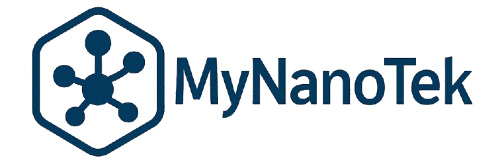How nanotechnology is shaping the future of biotechnology
How is Nanotechnology Reshaping the Future of Biotechnology?
Imagine a world where diseases are diagnosed in their earliest stages with a simple blood test, or where cancer cells are targeted and destroyed without harming surrounding tissue. Could nanotechnology be the key to unlocking such revolutionary healthcare solutions?
The Problem: Limitations of Current Biotechnology
Biotechnology has achieved remarkable milestones in drug development, genetic engineering, and diagnostic tools. However, it still faces significant challenges such as drug delivery efficiency, early detection of diseases, and precision medicine. These limitations often result in prolonged treatment times and increased costs, which can be prohibitive for patients worldwide.
Traditional methods rely on macro-scale interventions that can lack specificity and efficiency. Herein lies the need for a transformative approach—one that can operate at the molecular level to provide more precise and effective solutions.
Agitation: The Need for Precision and Efficiency
The inefficiencies in current biotechnological practices often mean that by the time a disease is detectable, it may already be too late for effective treatment. For instance, cancer survival rates significantly depend on early detection. According to the American Cancer Society, early detection can increase the survival rates by as much as 90% for certain types of cancer.
Moreover, the adverse side effects of systemic drug delivery systems often lead to decreased patient compliance and higher healthcare costs. The need for precision in treatment and efficiency in delivery is more pressing than ever before.
Solution: The Promise of Nanotechnology
Nanotechnology, the science of manipulating materials at an atomic or molecular level, is poised to revolutionize biotechnology by offering unprecedented opportunities for innovation. Through its ability to operate at the nanoscale, nanotechnology provides a way to overcome the current limitations of biotechnology.
Key Innovations and Applications of Nanotechnology
Here are some transformative nanotech applications already making waves in the biotechnology sector:
- Targeted Drug Delivery: Nanocarriers can transport drugs directly to diseased cells, increasing efficacy and reducing side effects.
- Early Disease Detection: Nanoparticles enhance the sensitivity and specificity of diagnostic tests, enabling earlier detection of diseases.
- Tissue Engineering: Nanomaterials create scaffolds that mimic natural tissue, promoting cell growth and tissue repair.
- Gene Therapy: Nanoscale vectors improve the delivery of genetic material into cells, potentially correcting genetic disorders.
“The ability to manipulate materials at the nanoscale will impact every area of our society, from medicine to manufacturing.” – Richard Smalley, Nobel Laureate
Understanding the Technology
To appreciate the full potential of nanotechnology in biotechnology, it is essential to understand some key concepts.
Encadré: Nanocarriers
Nanocarriers are tiny particles designed to deliver drugs or other therapeutic agents directly to a specific target in the body, thus maximizing the therapeutic effects while minimizing side effects.
The Road Ahead: Challenges and Considerations
While the potential of nanotechnology is vast, several challenges need to be addressed to fully harness its capabilities:
- Regulatory Hurdles: Ensuring the safety and efficacy of nanotech products can be a lengthy and complex process.
- Ethical Concerns: The manipulation of matter at such a fundamental level raises ethical questions that need careful consideration.
- Public Perception: Educating the public about the benefits and risks is crucial to gaining widespread acceptance.
Despite these challenges, the integration of nanotechnology in biotechnology promises a future where medical treatments are not only more effective but also more personalized and accessible.
Conclusion: Shaping a Better Future with Nanotechnology
In conclusion, as nanotechnology continues to evolve, its applications in biotechnology will likely expand, leading to groundbreaking innovations that could redefine healthcare as we know it. The intersection of these fields offers solutions that are not only more efficient but also tailored to individual patient needs.
Now it’s your turn. Consider how these advancements could impact your life or your field of work. Stay informed and engaged in the conversation about how technology trends are shaping our collective future.
